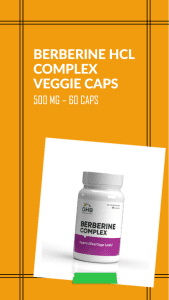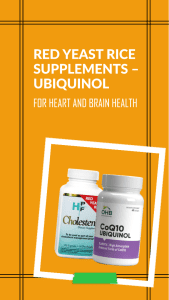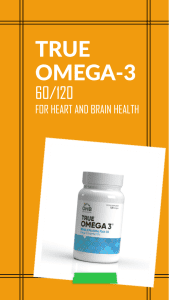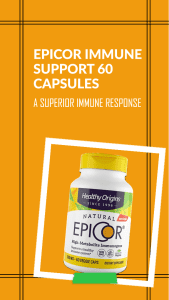
Share
Aging is a part of life—but what if you could age a little more slowly, feeling stronger and healthier along the way? That’s what new research is showing about Omega-3s. And yes, we’re talking about the same fish oil many people already take for heart health.
Here at Optimal Health Bridge, we love sharing the science behind simple ways to stay healthy. In this post, we’ll walk you through what Omega-3s are, what the newest study found, and how it can help you age better—from the inside out.
What Are Omega-3 Fatty Acids?
Before we jump into the new study, let’s cover the basics.
Omega-3 fatty acids are healthy fats your body really needs but can’t make on its own. That means you have to get them through food or supplements.
There are three main types:
- EPA (Eicosapentaenoic Acid): Helps fight inflammation.
- DHA (Docosahexaenoic Acid): Great for your brain and eyes.
- ALA (Alpha-linolenic Acid): Found in plants and can be converted into EPA and DHA—but not very easily.
You can get Omega-3s from:
- Fatty fish like salmon, mackerel, and sardines
- Plant foods like flaxseeds, chia seeds, and walnuts
- Supplements like fish oil, krill oil, or algal oil (a vegan option)
What the New Study Shows
A new 2024 study followed 1,250 adults between the ages of 45 and 70 for two years. One group took a daily dose of 2,000 mg of high-quality Omega-3s (EPA and DHA). The other group did not.
The results were exciting! People taking Omega-3s aged more slowly—not just on the outside, but at the cellular level. Their telomeres (which protect the ends of DNA) were longer. Their inflammation was lower. And brain scans showed signs of better function.
Dr. Elena Martinez, who led the study, said, “We were surprised by the magnitude of the effect. It’s like the Omega-3s pressed a ‘pause button’ on several aging biomarkers.”
10 Anti-Aging Benefits of Omega-3s
Here’s what the study—and others like it—found about how Omega-3s help slow down signs of aging:
- Protect DNA Telomeres: These are like little caps on your DNA that protect your cells. Longer telomeres mean slower aging.
- Lower Inflammation: Chronic inflammation speeds up aging. Omega-3s calm the body down.
- Boost Mitochondria: These are like tiny batteries in your cells. Omega-3s keep them strong and energized.
- Moisturize Skin from Within: They help your skin stay soft and flexible.
- Support Brain Health: They can slow down memory loss and even help the brain hold its size as you age.
- Protect Against Disease: Omega-3s are linked to lower risk of problems like arthritis, diabetes, and Alzheimer’s.
- Help Your Eyes: DHA supports your retinas and may slow age-related eye problems.
- Extend Lifespan (in animals): Mice and worms lived longer with Omega-3s. Hopefully, humans get similar benefits!
- Lower Biological Age: That means your body acts younger than your actual age.
- Turn on “Longevity” Genes: Omega-3s may influence genes that help the body age more slowly.
How Do Omega-3s Work?
How can one little supplement do so much? Here’s the science, made simple.
- Less Inflammation: Omega-3s reduce the chemicals that cause pain and swelling.
- More Antioxidants: They help stop damage from free radicals, which speed up aging.
- Better DNA Repair: They may help your body fix damaged cells more effectively.
- Brain Cell Support: DHA is a key part of brain cells and keeps them healthy.
- Gene Regulation: Omega-3s can help turn off genes related to fast aging.
Should You Take Omega-3s?
You might be wondering if you should start taking a supplement. The answer will depend on your health and diet, but many people can benefit—especially if they don’t eat much fish.
Who Might Benefit Most?
- Adults over 40
- People with inflammation or memory concerns
- Anyone who rarely eats fatty fish
Suggested Dosage
The American Heart Association recommends taking between 1,000 and 2,000 mg of EPA and DHA per day. Most high-quality Omega-3 supplements fall within that range.
What to Watch For
- Omega-3s can thin your blood a little, so talk to your doctor if you're taking blood thinners.
- Always look for purified, high-quality supplements to avoid that unpleasant “fishy burp.”
Types of Supplements
- Fish Oil: The most popular option, full of EPA and DHA.
- Krill Oil: Absorbs well and contains an antioxidant called astaxanthin.
- Algal Oil: A vegan source of DHA made from algae.
We recommend choosing a supplement that’s been purified and tested for quality—just like the ones we offer at Optimal Health Bridge.
10 Easy Ways to Get More Omega-3s
Not into swallowing pills? No problem! Here are some fun and simple ways to boost your Omega-3 intake:
- Sprinkle flaxseed on your cereal or yogurt.
- Eat salmon or mackerel twice a week.
- Snack on walnuts instead of crackers or chips.
- Take a daily Omega-3 softgel with breakfast.
- Try Omega-3 enriched eggs.
- Use flaxseed oil or walnut oil in your salad dressing.
- Read supplement labels and check for EPA/DHA levels.
- Keep krill oil capsules in your bag while traveling.
- Mix chia seeds into smoothies and puddings.
- If you're vegan or vegetarian, take a high-DHA algal oil supplement.
Just remember—taking Omega-3s every day works better than just once in a while.
Final Thoughts: Omega-3s and Healthy Aging
We can’t stop time, but we can feel better as we age. Adding Omega-3s to your routine may help you stay sharp, strong, and healthy longer. They’re not magic, but they are powerful. And when combined with good sleep, exercise, and healthy food, they can help your body thrive.
At Optimal Health Bridge, we're here to support your wellness every step of the way. Our Omega-3 products are carefully made with your health and safety in mind—so you can live your best life every day.










